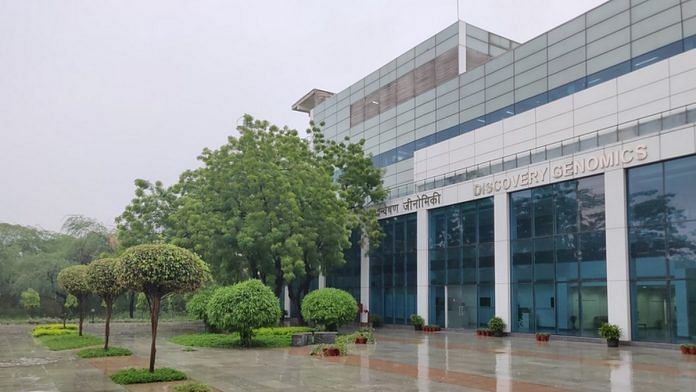New Delhi: The Council of Scientific & Industrial Research (CSIR) has developed a new Covid-19 test that can identify the variant of the virus identified in the United Kingdom within an hour.
The new test is called RAY (Rapid variant AssaY), in an homage to legendary Bengali filmmaker and author Satyajit Ray. It has been created by the same CSIR team that, in April last year, had designed ‘FELUDA’, a paper-based Covid test named after the fictional detective that Ray had created.
The RAY test has been developed at a time when countries across the world are actively surveilling international travellers for new variants of the Covid-19 infection, such as the variant identified in the UK, which spreads faster than the original SARS-CoV-2 variant.
The team of researchers — including those from CSIR-Institute of Genomics & Integrative Biology in Delhi and the Academy of Scientific & Innovative Research (AcSIR) in Ghaziabad — shared their findings in a paper, published Wednesday, that is yet to be peer-reviewed.
“Over the last year or so, as the virus has moved from person to person, it has picked up a lot of mutations — some of which ‘might’ have made the virus more fit. Some of them ‘might’ also become resilient to immune system attacks. There are possibilities that the variants ‘might’ respond less against the ‘vaccines developed, although such studies are still being done. All of these mean that is important to track the variants early and effectively,” Dr Debojyoti Chakraborty, scientist at CSIR-IGIB, told ThePrint.
“While it is common for viruses to mutate, it is important to track mutations that are possibly more dangerous,” he added.
Chakraborty led the work along with Dr Souvik Maiti, also a scientist at CSIR-IGIB.
Also read: India had estimated 28 cr Covid infections by mid-December, ICMR’s latest sero survey shows
RAY test faster than genome sequencing
The variant with the mutation N501Y, identified in the UK, has worried health authorities across the world, since it transmits much faster. To prevent the spread of this variant in India after it was reported from 23 countries, a consortium of genome sequencing labs was set up last month. Samples from all travellers who test positive for Covid-19 have to be subsequently sequenced to check for the mutation.
CSIR-IGIB has also set up a kiosk at the Delhi airport to collect samples for sequencing.
Genome sequencing — a method used to ‘decode’ the genetic code of the virus — is an extensive process and currently the only way to identify a new mutation. It requires a lot of dedicated machines and manpower. It also generates results only after 36-48 hours.
“Genome sequencing also generates a lot of data, which also requires storage space. During an ongoing pandemic, it is next to impossible to genetically sequence all samples to look for mutations,” Chakraborty said.
The paper strip-based RAY test relies on a protein called Cas-9, that can recognise and bind to a particular segment of the viral genome. If there is even a single point change in the genome segment, the protein will not bind, which will generate a negative read-out.
“The test gives a positive or negative readout within an hour, and the cost involved is several times lower,” Chakraborty said.
Together, he added, the FELUDA and RAY tests can track and trace new variants early.
Another advantage of the FELUDA-RAY tests is that if a new mutation is identified in the future, it will just take two to three weeks to modify RAY to identify the mutation.
In their paper, the researchers reported that the three SARS-CoV-2 variants with the common mutation, N501Y, from UK, South Africa, and Brazil can be identified within an hour using the paper strip test.
Chakraborty said the CSIR is currently making the test available for the healthcare authorities for immediate use, but the team hopes that the test is widely used soon.
Also read: Mobile hospitals inside cargo containers — how India is preparing for next disease outbreak



